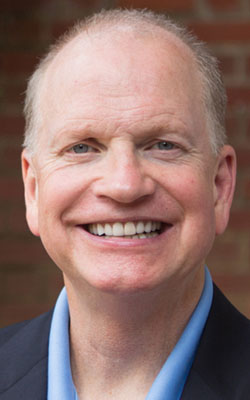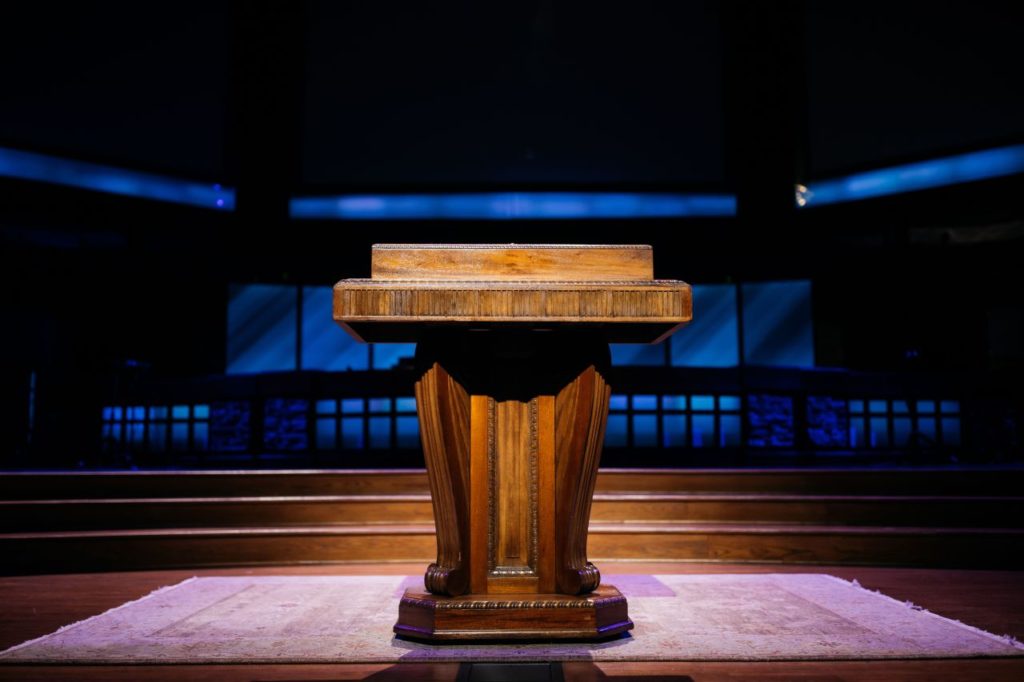

WAKE FOREST, N.C. (BP) – As I preach across the country and engage leaders throughout the Southern Baptist Convention, I am often asked about the current discussions concerning women in ministry in our SBC family. I believe it is important to provide clarity in this cultural moment, addressing what I believe is the biblical understanding of the office and qualifications of a pastor.
The longer I have been in ministry, the more I am convinced that there is great wisdom in being a confessional people. As Southern Baptists we collectively affirm The Baptist Faith and Message 2000 as our common confession of faith. In my role at Southeastern, I, along with our faculty, also affirm three other confessional documents to which we are accountable theologically – documents that we believe help preserve biblical unity and fidelity at our institution.
To serve on our faculty, every professor must sign The Abstract of Principles, which is the oldest confessional statement written by Southern Baptists. Southeastern stands theologically not only where Baptists have stood throughout history, but also where Baptists stand today. All of our faculty must also sign The Baptist Faith and Message 2000. And, we affirm without hesitation or mental reservation the Chicago Statement on Biblical Inerrancy and the Danvers Statement on Biblical Manhood and Womanhood.
These statements represent the foundational doctrinal commitments of our institution and the boundaries of our confession. In particular, the Danvers Statement accurately – albeit concisely – articulates our complementarian understanding of manhood and womanhood, including what we believe to be a biblical perspective on gender roles.
Churches that cooperate with the Southern Baptist Convention should be diligent to reaffirm certain doctrinal and theological commitments in every generation. The authority, sufficiency, inerrancy and infallibility of Scripture is one of these foundational commitments. With widespread gender confusion in the world right now, I am convinced that God’s design for men and women – in particular, gender roles – is another one of these core commitments that we must reaffirm, especially in our present moment.
In 1 Timothy 3:15, the apostle Paul reminds us that the Church is “a pillar and buttress of the truth.” This means the responsibility for preserving and practicing biblical doctrine falls to us – to our churches. As I understand it, that means our churches should not have to ask, for instance, what it means to be a pastor or who can be a pastor – not if our churches are stewarding well our responsibility to teach and safeguard biblical doctrine.
I believe the New Testament clearly teaches that God, by the work of the Holy Spirit, calls certain men to the office of pastor – an office reserved for qualified men who offer spiritual care and oversight for local churches. I understand the New Testament language of elder, pastor and overseer to all refer to this one office. This has been the overwhelming conviction of our Baptist people throughout our history, and it continues to be the conviction of our people today. An elder is an overseer is a pastor.
As a complementarian, I believe that Scripture reserves pastoral leadership in the local church and leadership in the family for men. This theological perspective is being questioned by some evangelicals, but such questioning does not negate its truthfulness nor should it lead us to compromise on the gender roles God has clearly assigned in Scripture.
Now, let me be plain about what I do not mean. My complementarian convictions do not mean men are superior or more spiritual than women, or that women are incompetent or unable to serve the Lord with distinction and faithfulness. Far from it! Southeastern welcomes women to come and study with us. Women’s gifts are essential to the health and building up of the Church. I am so encouraged by my sisters in the faith who, throughout Church history, have served Christ faithfully in the roles he has appointed for them. Moreover, I am also challenged by my sisters who have served in these roles with unrivaled sacrifice, resolve and faithfulness and helped to fulfill the Great Commission of King Jesus. I think of Betsey Stockton, Amy Carmichael, Ann and Sarah Judson, Lottie Moon, Bertha Smith and so many other choice servants of King Jesus.
My complementarian understanding of gender roles also means that I believe God has appointed male leadership in the home to picture Christ’s care for his Bride. According to Ephesians 5, the husband’s leadership in the home must be grounded in the truth of God’s Word, animated by love and characterized by sacrifice – all with the purpose of encouraging his wife in her maturity and sanctification in Christ. In a home characterized by these qualities, the wife’s responsibility is to submit to her husband, as unto Christ, working in unity with her husband toward God’s design for the home and the Great Commission.
As important as it is to maintain a clear biblical understanding of gender roles in the church and the home, it is of critical importance that we hold our complementarianism graciously and lovingly – after all, we can uphold the right doctrine but do so in the wrong spirit, which would be a sin. That means my complementarianism does not give me or anyone else a pass for platforming men while demeaning women.
At Southeastern, we are committed to the biblical qualifications for a pastor and God’s design for men to pastor local churches. While our faculty fully affirm this position, some students have pursued theological education at Southeastern while maintaining a different perspective. We train students across the denominational spectrum that do not hold to all the same institutional and theological convictions as ours. It is our job to challenge these views (and we do!) by clarifying the biblical picture of church leadership and by encouraging men and women to fulfill the roles God has uniquely designed for them. We are committed to training every student whom God sends us, and we recognize that it is the local church’s responsibility to affirm God’s calling on these students’ lives in accordance with the biblical qualifications for a pastor.
These days are challenging days. We must stand firm on the truth of Scripture while doing so in love. As complementarians we must teach what roles God reserves for men. We must also teach the beauty, significance and variety there are in the roles God has assigned to women. What if as complementarians, we were to celebrate the women in our congregations and encourage them to embrace their invaluable God-given roles to serve King Jesus? What if we challenge men to lead with truth and humility in the home and in the Church and reaffirm the biblical imperative of godly male leadership in the Church that fulfills the qualifications of 1 Timothy 3 and Titus 1? I believe God will be pleased and our churches blessed. Our Father knows best. We can always trust His perfect will revealed in His Word.
















